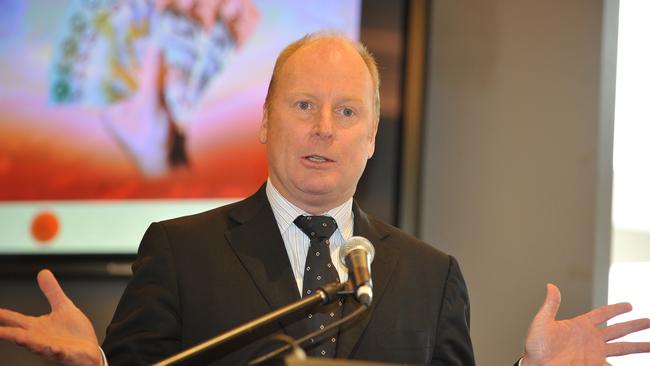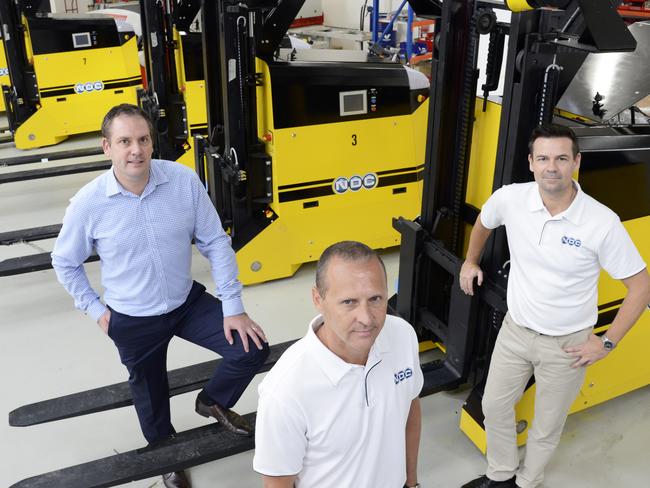Industry 4.0 offers infinite possibilities for Australia’s economy
IT seems that every new concept in the modern world has to be given a label. And the latest breakthrough in manufacturing is called Industry 4.0.

IT seems that every new concept in the modern world has to be given a label. And the latest breakthrough in manufacturing is called Industry 4.0. This tag suggests that there is a fourth phase of industrial development; moving ahead from the first three phases of mechanisation, electrical and computerisation.
The fourth phase is said to be about artificial intelligence of the machines — a world where labour savings devices (evolved through the first three phasers of industry) recognise when stocks are low and replenish them; when customers habits are changing and when new raw materials need to be ordered.
Australia needs to be at the forefront of this development, but is in danger of slipping behind. Germany, especially, has grabbed the concept of Industry 4.0 as a blueprint for its industrial development — aided by some of the world’s leading engineering companies such as Siemens.
Australia is a classic country to take advantage of such a change — our companies have struggled to compete against cheap Chinese imports or more specifically our labour force has struggled to compete with cheap Chinese wages.
The challenge coincides with the everyday quest to reduce prices — and the pressure that creates in the supply chain. Raw material suppliers (think farmers and entry-level manufacturers) constantly complain that they are being squeezed by larger companies (the classic, of course, being the supermarkets) in the quest for ever decreasing prices.
The pressure supply chain inevitably seeks to identify where costs can be extracted, which leads to ongoing questions about the ongoing cost and efficiency of labour versus automation. Though this is to the detriment of workers in many supply-chain industries, it is the inevitable consequence of our rapidly developing consumer world (which sees the price of many cars and electronic equipment at the same price as they were 20 years ago).
In other words, change keeps happening and the modern workforce — and small business — has to evolve or suffer the consequences.
But there is a large part of Industry 4.0 that creates enormous opportunity for Australia. As one of the developed economies that is most vulnerable to competition from low wage nations, we have a greater incentive to create the new smart technologies.
This is not merely the domain of large business. Indeed, it is likely that smart, small and medium-sized enterprises will be more innovative and faster to market than larger, established players. Small teams of engineers and IT specialists are already coming up with the plans to create Industry 4.0. The opportunity is there; the demand is there.
But rather than retreating from the challenge of tighter supply chains and a changing commercial environment, Australia needs people prepared to take some risks, accept a challenge and come up with some answers.
HI-TECH SOLUTIONS PROVING A VEHICLE FOR CHANGE
THOUGH Industry 4.0 is the new buzzword in manufacturing, for tommy Eklof and his team at NDC Australia it’s just the way they do business.
Eklof has been at it for 17 years, since he began making automated vehicles as logistics and supply chain solutions.
“Most companies today move products using a man and a forklift. It’s the way it’s being done in 99 per cent of business in Australia and worldwide. What we do is make machinery that moves all by itself inside the warehouse,” he says.
These automated machines that can move goods around a warehouse — controlled by computer program — are based on Swedish technology that Eklof was introduced to through a family friend.

Though he started selling the Swedish technology, he quickly realised he could create the vehicles himself in Australia.
“This is not just a good business for those who have the technology but also for the companies we sell it to. Labour costs have become one of the biggest killers for manufacturing,” he says.
The companies NDC has already done work for include Bega Cheese, Amcor, Cadbury, Coca-Cola, Colgate Palmolive, Fairfax, Fonterra, Ford, Heinz, Holden, MasterFoods, Unilever and the Royal Australian Mint.
However, Eklof says resistance to change remains the biggest hurdle.
“There are lots of times I wanted to throw it all away and go and get a job, it was hard going and no one would listen to me,” he says.
“But like lots of other business people, it was just the perseverance and tenacity to keep on going.”




